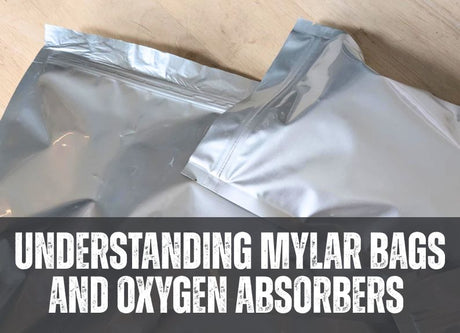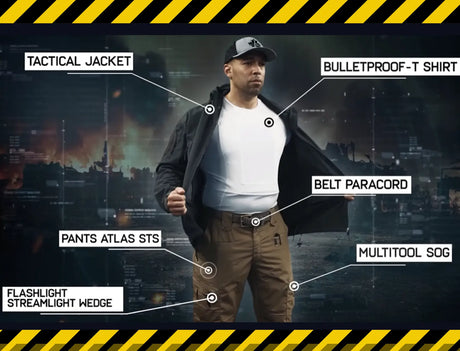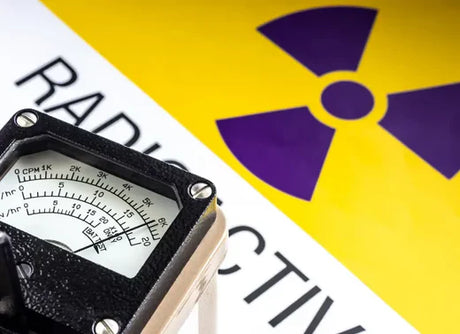Whether or not we want to admit it, building a healthy community is essential to human survival. We’ve already discussed the necessity of conflict management and de-escalation, but effective communication will make conflicts less common and collaboration more efficient. This blog explores the basic rules of effective communication and how it can increase group cohesion in a post-apocalyptic environment.
Stress is detrimental to human survival.
Much of our stress comes from a lack of effective communication about our feelings, worries, or environment. Supportive systems are critical for building the communities we will need to increase our chances of survival after a breakdown of the nation-state and its services.
Stress management is not only essential for our health but also a necessity for cohabitating with other people. Chronic stress can lead to irritability, lack of concentration, poor decision-making, and increased error. Obviously, in a survival scenario, there is little room for mistakes. Staying calm and collected is the best way to prolong your life, care for your family, and build a thriving community.

The main tenants of good communication in a high-stress situation.
A conversation is quickly derailed when we lose track of the topic or fail to let another person fully articulate their point of view. A crucial part of effective communication is to manage one situation at a time instead of engaging in conflict about the details or your reaction to the topic.
-
When communicating with others, be specific.
Being specific is especially necessary when communicating danger, but it is also essential for avoiding upset or confusion when talking to others––even about mundane topics. It is also reasonable to calmly ask someone else to be specific with you if they are being indirect or vague. Be sure to frame your request as calmly as possible, for example, “I want to understand your meaning. Can you tell me again more clearly?” Effective communication can take practice, as we want to fill in context, be vague to sound kinder, or misdirect to avoid conflict. Like all preparedness skills, this is actively developed over time.
-
Be aware of your body language.
It’s not just about what you say. Your non-verbal communication plays a significant role in conversations with others. Regardless of how kind your words are, they can be construed as aggressive if you are towering over someone else while you are saying them. Next time you are in conversation, pay attention to how you’re holding your body. In a survival situation, being aware of your body language can differentiate you as a friend or a threat, so this is a critical skill to develop in a survival setting.
- Maintain a relaxed composure with arms to your side, not crossed
- Try to balance height differences so that you are communicating on an equal field
- Demonstrate active listening through gestures such as nodding, agreement, and repeating information to ensure understanding
- Relax your hands and face
-
Maintain a comfortable distance from the speaker
-
Learn to listen.
Actively listening to others is the best method for avoiding confusion and maintaining trusting relationships with your post-apocalyptic community. Group cohesion plays a significant role in success in high-stress environments, and active listening is essential.
Active listening has three main features:
- Repeating information back to the speaker to ensure understanding
- Not formulating a rebuttal while the speaker is communicating
-
Managing defensiveness and remaining calm and open to the ideas and opinions of the speaker
-
Take responsibility for your thoughts and feelings.
Avoid blaming others in your group, and take ownership of how things make you feel. If someone does something that pisses you off, connect the action you’re feeling by saying, “when you did this, I felt like this.” Good communication is also about accountability, but not putting your feeling in the statement will make other people immediately defensive, causing rifts and frustration.

Survival depends on building community.
These main tenets define group cohesion:
- Trust between members
- The group allows members the autonomy to act freely
- A strong community united by goals and outcomes that each member prioritizes
- Roles and responsibilities are clearly defined
- Communication between members is clear and frequent
Group cohesion actively contributes to survival. A cohesive group is less stressed and trusts their group to work towards common goals; however, building a cohesive group is only possible with clear and effective communication. Clear communication builds the framework for highly successful communities, which are necessary for human thriving––especially in a post-collapse world where a lack of resources and structure will become a reality.
Clear roles are a necessary component of creating cohesive group structures. Developing a group where each member’s assets are accounted for and utilized towards an overall goal is essential to creating cohesion. Poor communication, redundancy, and a lack of accountability will lead to factions and dissent.
Building societies outside national identity and centralized structures will be a post-collapse reality. You can develop the skills necessary for understanding other people’s perspectives and goals in your current small communities. These skills are critical in a world after disaster.









